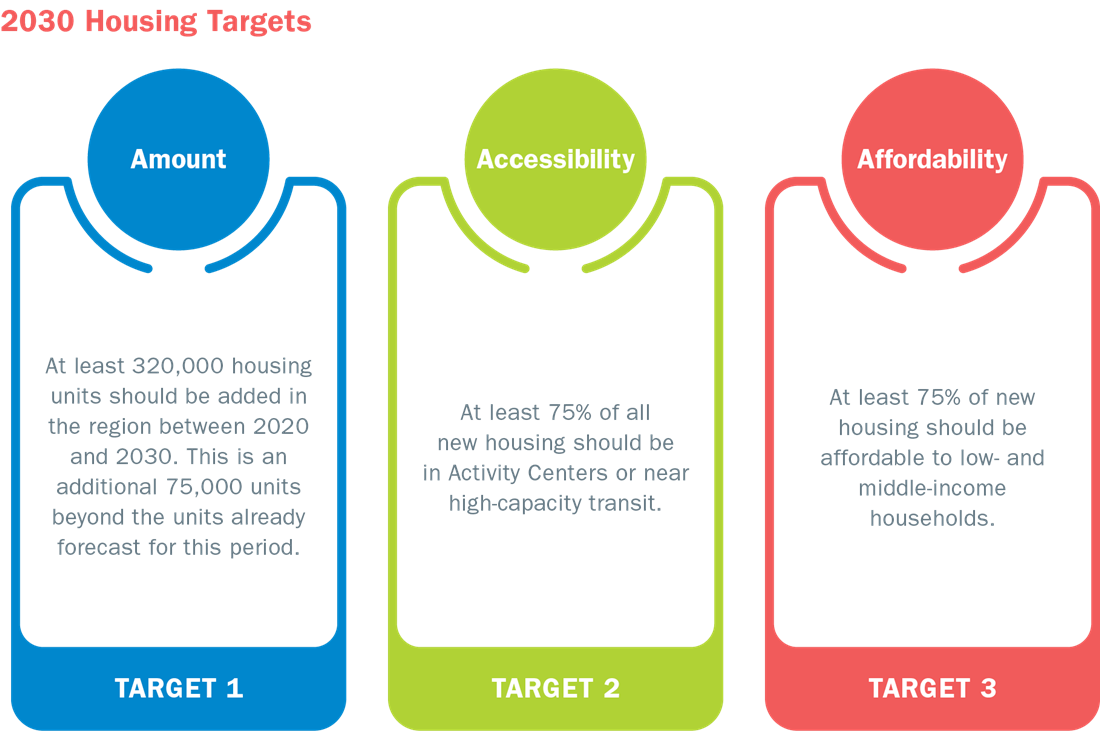There is a growing consensus that the region’s elected, business, and nonprofit leaders must act to ensure a sufficient supply of affordably-priced housing for current residents, and for the new residents and workers expected in metropolitan Washington’s future.
To advance metropolitan Washington’s livability and address housing production and affordability challenges, the COG Board—at its September 2019 meeting—endorsed a set of regional targets for 2030. The targets were the culmination of a coordinated effort by COG and local planning and housing agencies initially sparked by the Transportation Planning Board’s Visualize 2045 long-range transportation plan. In seeking a better balance between growth in jobs and housing, a TPB task force determined a jobs-to-housing ratio to optimize economic competitiveness and improve the performance of the transportation system. Using the ratio, COG determined the region’s housing needs.

Read more about the targets in COG's report, The Future of Housing in Greater Washington, and learn how COG is building on this work through its Region United Planning Framework for 2030.
To encourage public support for action on housing, several organizations, including COG, came together to develop a messaging playbook authored by national expert Dr. Tiffany Manuel to help area leaders—across all sectors—communicate more effectively.
In addition, COG's Housing Affordability Planning Program, financed through the Amazon Housing Equity Fund, supports planning initiatives and projects to increase the amount and affordability of housing near transit.
News & Multimedia
-
News
February 16, 2022
In the two years since the region’s officials adopted shared Regional Housing Targets for production, affordability, and location near transit, local...
-
News
February 2, 2022
Through COG's and the TPB's flexible grant and technical assistance programs, local governments can explore innovative ideas or advance critical projects while...
-
News
January 31, 2022
At the start of 2022, metropolitan Washington faces a double challenge. First, the region continues to battle COVID-19. At the same time, area leaders must keep...